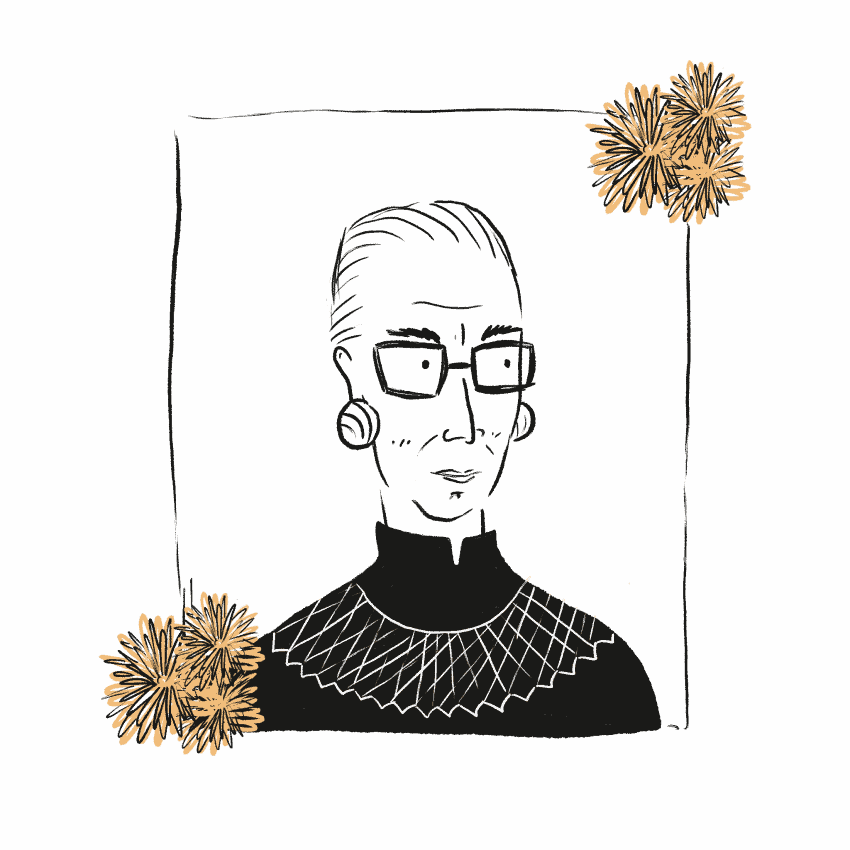
The late United States Supreme Court justice Ruth Bader Ginsburg leaves so much for us to ponder. Her legacy of championing for gender equality rights serves as inspiration for aspiring lawyers — but it also demands a second look.
Ginsburg, who died at age 87, grew up in a society where she had to fight for basic rights, denied only because she was a woman. She was one of nine women in her law class at Harvard and despite graduating at the top of her class, she struggled with obtaining employment post-graduation.
She eventually got a job teaching, not practicing, at Rutgers School of Law. The inequality didn’t stop there. Because her husband had a well paying job, the college’s dean asked her to take a lower salary. After realizing that her male counterparts earned a higher salary, she joined an equal pay campaign at the school with her female colleagues.
In her long career, she brought six cases — an achievement in itself — in front of the Supreme Court and won five of them. She also enforced the meaning of the equal protection clause in the United States constitution to apply to women.
Before becoming a Supreme Court justice, Ginsburg fought for gender equality in many ways, one being her equal pay campaign. She took part in the American Civil Liberties Union sex discrimination cases and eventually created the ACLU Women’s Rights Project in 1972.
Ginsburg was appointed to the Supreme Court in 1993 by President Bill Clinton.
Her work both in arguing cases in front of the Supreme Court and then as a Supreme Court justice removed many barriers for women. In her infamous 1971 equal protection case, Ginsburg set a precedent against gender discrimination pertaining to the law. She revolutionized the way the constitution was upheld for women.
Although Ginsburg is an American justice, her work extends beyond the American borders. In arguing and then successfully winning her cases for the equality of women, she set a standard for how women should be treated globally.
As Ginsburg herself said, gender equality is about representation, no matter where that representation is.
“When I’m sometimes asked ‘When will there be enough [women on the Supreme Court]?’ and my answer is: ‘When there are nine.’ People are shocked. But there’d been nine men, and nobody’s ever raised a question about that,” Ginsburg’s famous quote reads.
Her powerful voice and her strongly worded dissenting opinions rightly earned her a notorious reputation — hence her nickname, Notorious RBG — up to a point that she is considered a real life superhero, as seen by the thousands of hundreds globally that mourned her loss. Her life even featured in a biographical movie titled On the Basis of Sex.
However, Ginsburg’s legacy is not as simple as this first glance seems. Although she advocated for equality in terms of gender, she failed to do the same on issues of race equality. She called NFL quarterback Colin Kaepernick’s kneeling in protest of racial injustice, “dumb and disrespectful.”
This apparent paradox between her legacy of fighting for womens’ rights and not understanding the importance of the fight for racial justice is disappointing. Knowing her work as someone who has done so much for womens’ rights, I expected more understanding from her.
After U.S. President Donald Trump’s election in 2016, Ginsburg called him a “faker” and talked about her fears of what his presidency would mean for both the country and the court — a line that no other Supreme Court justice has crossed. In the United States, no Supreme Court justice has ever talked about politics as publicly, due to the high standard of impartiality required for the job. Her failure to do so is a gross misstep — to me, this shows her inadequacy in handling cases, impartially and fairly, that are against her point of view.
So, although Ginsburg has an inspiring legacy, she also leaves behind a problematic legacy in her missteps throughout her career.
As an aspiring lawyer myself, I take inspiration from her exhilarating 61-year-long career but I also recognize, in the wake of her complicated legacy, that the legal system must keep moving forward to grant all people their constitutional right to equality and freedom.
—
Wardah Anwar | News Editor
Graphic: Anh Phan | Design Editor
Leave a Reply